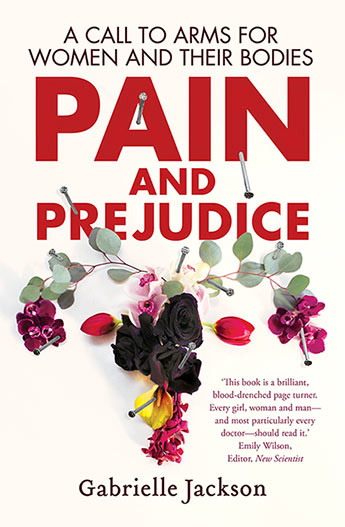 Pain and Prejudice
Pain and Prejudice
by Gabrielle Jackson
Allen & Unwin
Gabrielle Jackson has worked as a journalist in Australia, USA and the UK. From her teens, she has suffered various health problems and did what most of us have been told to do – “just get on with it”. Pain became part of her life for so long, she normalized it and was eventually diagnosed with endometriosis in 2001 and adenomyosis in 2015.
One in ten women of reproductive age has endometriosis (that’s 176 million women worldwide) and yet Jackson found that there was no known cure and very little research. Medical practitioners often dismissed sufferers as “being difficult rather than ill”. Jackson referred to herself as a hypochondriac to avoid criticism and she became yet another woman with chronic pain who was disbelieved, dismissed or diagnosed with mental health conditions.
In writing a report for The Guardian, she was flooded with responses from women who had been ignored by a patriarchal health care system, each horror story more tragic than the last. A common thread was that women were “treated as unreliable witnesses to their own health, while diseases that mainly affect them are under-researched.” She decided to further investigate how women’s pain has been treated throughout history and is now treated by modern health care systems and society as a whole.
Having personal motivation for her extensive investigation, she found lengthy delays in diagnosis for people with chronic pain, along with disbelief and piecemeal care. Looking at the US, UK and Australia, she discovered that sufferers who are women of colour, LGBTI+ people, women in rural areas or poorer women found it far more difficult to be heard, believed and treated.
Jackson compiles comprehensive evidence on the social taboos and medical ignorance that has lead to women in chronic pain to be either dismissed or labelled as ‘crazy’. She blames Western medical education for being deficient in how to deal with patients whose symptoms can’t be resolved or relieved and the male-centred bias of medical knowledge used by both male and female doctors.
It is not until the very end of the book that Jackson reveals indications that change is slowly happening and public awareness is growing. She points out that pain isn’t killing women but it is denying them their full humanity and needs to be taken as seriously as men’s pain. But so much more needs to happen for all the women who are suffering needlessly.
Lezly Herbert





